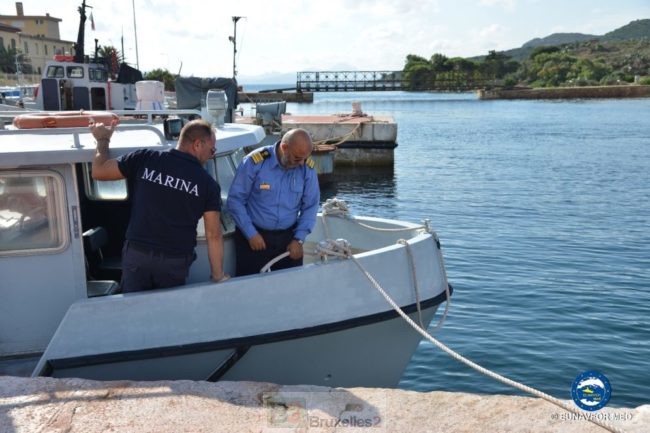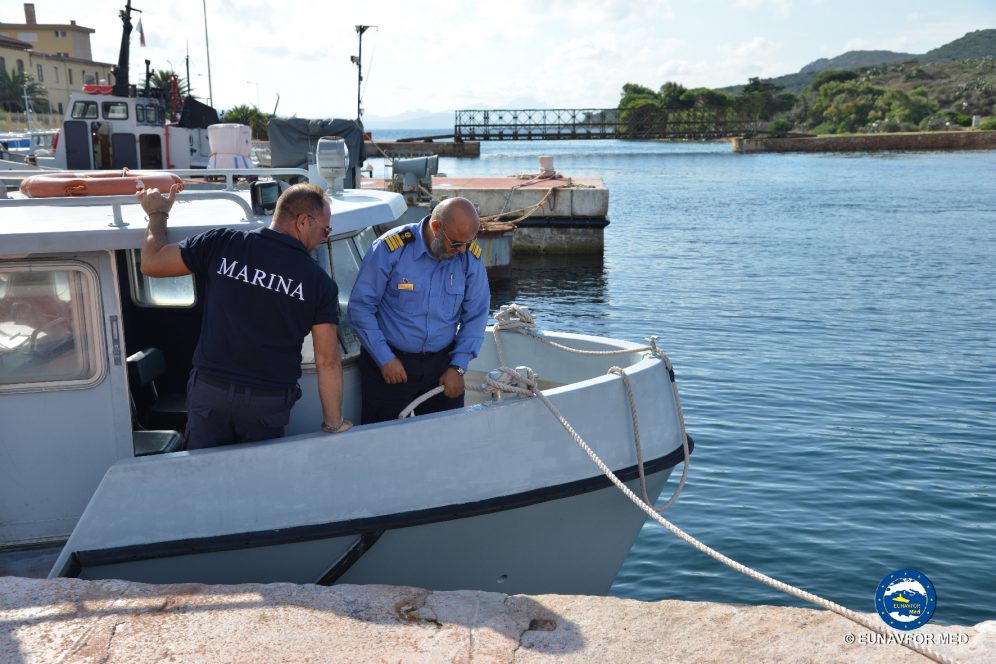69 Libyan coastguards and sailors in Italy for training
(B2) A "level 2" training module has just started in Italy on October 8 for Libyan coastguards and sailors

Organized by the Italian Navy, in the Italian Navy training center in La Maddalena, this new module will last eight weeks until November 30, 2018 and involves 69 trainees. It consists of a " deck officer course " and of " maintenance worker course ". The objective - according to information provided by the operation's headquarters in Rome - is to provide the Libyan Coast Guard with knowledge and training on general activity on board a surveillance vessel at sea as well as lessons focusing on human rights, first aid, gender equality policy and basic language skills in English (1).
305 coastguards trained in total
With this new training, and that provided this summer by the Spanish Navy (read: Training completed for 26 Libyan sailors and coast guard), 305 members of the Libyan Coast Guard and Navy will have been trained by Operation Sophia / EUNAVFOR Med. We are thus approaching the objective of 500 people trained (normally scheduled for the end of 2017), but very slowly. It should be noted that other additional training modules will be organized later, in Croatia in particular, then in Spain, and perhaps in Greece.
Slowness explained by several factors
There are several cumulative reasons for this slowness: 1° the difficulty of finding coastguard names (it is the Libyans who provide them), 2° the verification procedure (dressing) which has been reinforced (it lasts 7 weeks); 3° the internal difficulties of the Europeans, in particular to know who would finance this training. The question of whether it was possible to give a per diem (per diem) to the Libyans in training (a claim of the Libyans) was particularly difficult to resolve. Finally an agreement was made between the Member States on this point, but on the basis of voluntary contributions from several Member States, and not on the basis of the common budget of the mission...
(Nicolas Gros-Verheyde)
- How is the follow-up (monitoring) of the Libyan Coast Guard ensured today?
- How many Libyan coastguards have been trained by Europeans? (V2)
(1) Most Libyan coastguards and sailors do not speak English, which is the language commonly used at sea, in the merchant navy. This is the cause of several problems or misunderstandings. Read : When the Libyan Coast Guard and NGOs intervene at the same time, it's a mess
Updated on training locations adding Spain

